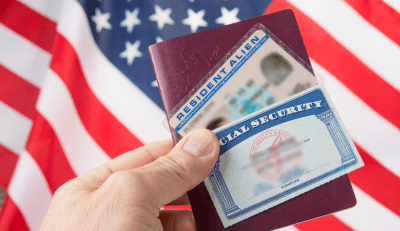What Happens if You Leave Early?
Are you considering leaving your federal or postal service job before reaching retirement age? While it may not have been your original plan, unexpected circumstances or new opportunities can sometimes lead to an early departure from your current position. But what happens to your retirement benefits if you leave before you’re eligible to retire? The good news is that you may still be able to access some of the benefits you’ve earned during your time of service. In this blog post, we’ll explore the options available to federal and postal service employees who leave their jobs early and highlight some of the benefits you can still enjoy even if you don’t work until retirement age. So, let’s dive in and see what your retirement future could hold!
If you’re a federal or postal service employee, you’re likely aware of the generous retirement benefits offered by the government. These benefits include a pension plan, Thrift Savings Plan (TSP), and access to health insurance in retirement. However, these benefits are typically only available to those who have completed a certain number of years of service and have reached a specific age. So, what happens if you leave before reaching retirement age?
First, let’s talk about the pension plan. If you leave before you’re eligible for retirement, you won’t be able to collect your pension immediately. However, you may be able to receive a refund of the contributions you made to the plan during your time of service. Keep in mind that if you choose to receive a refund, you forfeit any future pension benefits. Additionally, if you’ve worked for the government for at least five years, you may be eligible to receive a deferred annuity. This means that you can start receiving your pension benefits at a later date, such as when you reach retirement age.
Another retirement benefit available to federal and postal service employees is the TSP. If you leave before retirement age, you can still keep your TSP account and the funds you’ve contributed. You can also continue to manage your TSP account and make additional contributions if you choose. Keep in mind, however, that you won’t be able to access the funds penalty-free until you reach retirement age. If you withdraw funds from your TSP account before then, you’ll likely face a penalty.
Lastly, let’s talk about health insurance. If you’ve worked for the government for at least five years, you’re eligible to continue your health insurance coverage in retirement. This means that even if you leave before reaching retirement age, you can still access this valuable benefit. Keep in mind, however, that you’ll need to pay the full cost of your health insurance premiums. Your employer will no longer contribute to the cost once you leave your job.
In the end, the decision to leave your federal or postal service job early is a personal one that depends on a variety of factors. However, it’s important to remember that even if you do leave early, you may still be able to access some of the retirement benefits you’ve earned. By understanding your options and planning ahead, you can make sure that you’re taking advantage of all the benefits available to you.
If you’re unsure about your retirement options or have questions about how leaving your job early could affect your benefits, consider reaching out to a financial planner or retirement specialist. They can help you navigate the complex world of federal and postal service retirement benefits and make informed decisions about your future.
It’s worth noting that even if you leave your federal or postal service job before reaching retirement age, you may still be able to work for the government again in the future. If you’re rehired, your previous years of service may be credited towards your retirement eligibility, which could make a significant difference in your retirement benefits.
It’s also important to consider that retirement benefits aren’t the only factor to think about when leaving your job early. For example, leaving early could affect your eligibility for certain types of government assistance, such as unemployment benefits. It’s important to weigh the pros and cons carefully before making any decisions about leaving your job.
Leaving your job early may not be the retirement plan you originally envisioned, but it doesn’t mean you have to sacrifice your retirement security. With careful planning and a clear understanding of your options, you can still enjoy the benefits of a comfortable and secure retirement.




